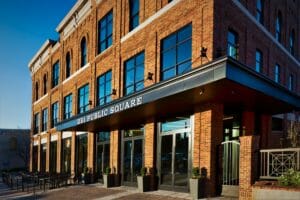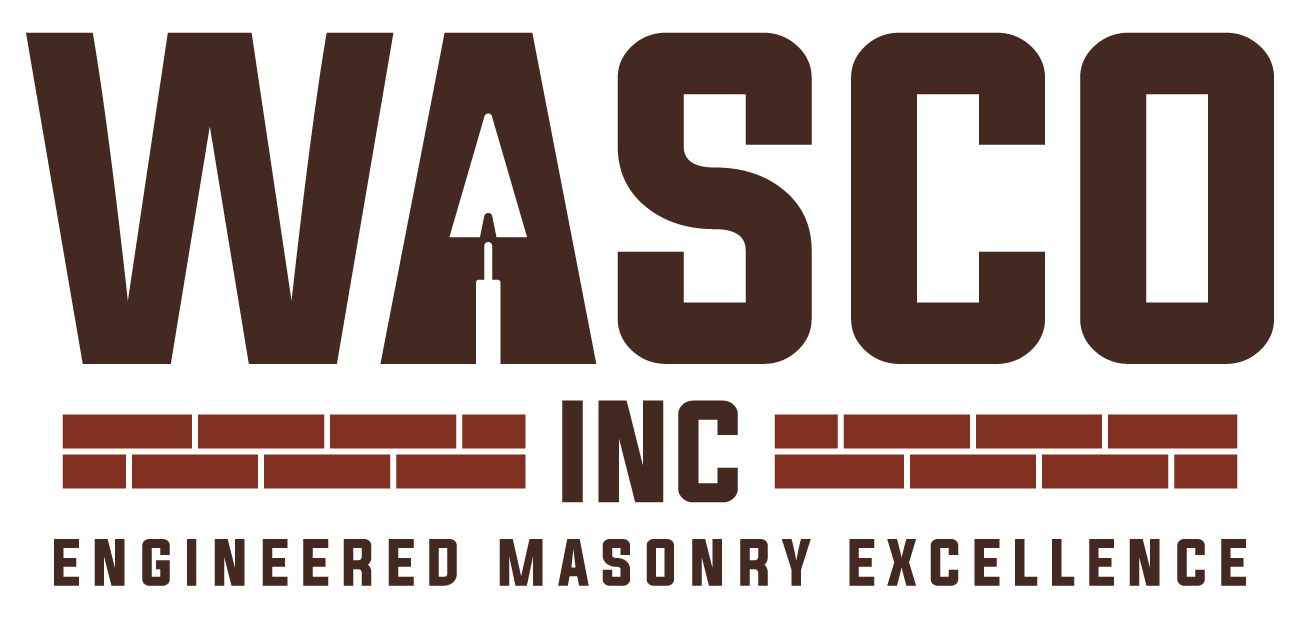Company History Series: WASCO and Lovell’s Part 3
WASCO and Lovell’s: From the same masonry family Tennessee has trusted for decades.

“Back then they were thick glass, and he would take the edge off the bottom of that bottle, and that’s what he wanted used to shrink the joints on this building. So he went out and bought a couple of cases of this Tropicana orange juice — it came in a small 6- or 8-ounce bottle back then — and that’s what we jointed that building with,” Lovell says. “That’s the way he wanted it, and that’s what he got.” — Where we left off on Part 2
David’s goal as the third-generation head of Lovell’s is to uphold the high status his grandfather and father established before him, and emulate the strong but kind leadership that defined the company at its outset. The recently completed 231 Public Square (pictured above) in Franklin, Tennessee—a stunning, classic-styled multi-use structure setting a new standard for high-end design in aesthetics-conscious Williamson County—stands as evidence that Lovell’s is positioning itself for a bright future. The intention for the building was to restore 1920s-era elegance to the early-’70s bank building that had long disturbed the visual flow and character of Franklin’s Downtown Historic District.
Brick details of the structure include features from the original building that stood on the site—the glamorous Arlington Hotel—until around 1940, resonating beautifully with downtown Franklin’s emphasis on honoring its architectural history. The project’s co-developer and GC, Brian Schiedemeyer, told local media in 2018 that 231 Public Square’s delay in completion was related to the highly specialized masonry processes essential to realizing the project’s extraordinary design. “It’s not just any mason who can come out here and do this,” he told the Williamson Herald.
The building’s cavity wall construction and the crucial attachment of cut Indiana limestone in large, recurring horizontal sections proved a time-consuming challenge even for Lovell’s specialized craftsmen. Also visible across portions of the structure are labor-intensive dimensional effects laid into the brickwork, from insets and layered surfaces to the ornate, outward-projecting brick designs created by corbelling. Franklin mayor Dr. Ken Moore later cited Lovell’s “masterfully done brickwork and limestone detailing” in a letter to the selection committee of the Heritage Foundation Preservation Awards, which later presented David Lovell—on behalf of Lovell’s team of craftsmen—with its Award of Excellence for Outstanding Work by a Craftsperson.
As it has for more than a quarter century as a regional arm of WASCO, Lovell’s has done its parent company proud by continuing to provide big-city professionalism coupled with a community mentality that emphasizes respectful, genuine relationships with clients and employees alike. For David Lovell, positive relations with his workmen in particular is of utmost importance. In a business where providing consistent workflow is challenging at best, Lovell recognizes the value of his loyal core team members.
“They would climb mountains for me. Those are the people I lean on daily—they really produce.”
WASCO president and CEO Andy Sneed adds that there’s a unique and effective chemistry among Lovell’s tight-knit, locally originating workforce. “They’ve got a good bunch of craftsmen, and you can see it in the buildings they’ve built ,” says Sneed, citing the workmen’s shared regional roots as one reason why autonomous operation remains WASCO’s preference for Lovell’s. The Columbia company is nonetheless intertwined with WASCO, benefiting from its administration. Sneed explains that his son Trey, now senior VP of field operations over Lovell’s, served his apprenticeship under David Lovell, creating a layer of mutual trust and goodwill that reaps benefits for both men—and both of their family-based companies.
In a time-honored trade such as this, there’s a certain comfort and customer confidence that comes from knowing that business is being conducted based on longstanding values carried down through generations. With fewer young men being attracted to the tough conditions of masonry work, Lovell is gratified to report that his son—named Mason, in fact—chose to enter the family profession straight out of high school. In the spring of 2019, already midway into his apprenticeship, Mason took first place in his division in MCAA’s Masonry Skills Challenge at the annual Spec Mix Bricklayer 500 competition.
“Obviously it’s in his blood,” observes the senior Lovell, who figures that’s true of himself as well. “My daddy used to say ‘it’s hard but it’s fair.’ It’s an honest living. Architectural details change with time and more components get added,” Lovell says, “but the core stays the same. Block and brick are still block and brick.”
A stone may still be a stone, but not all who build are equally built. Craftsmanship, ethics, community-mindedness and common sense that would win a grandfather’s nod of approval are the reasons why both WASCO and Lovell’s Masonry are the choices of discriminating contractors who appreciate the strength of a firm foundation.
